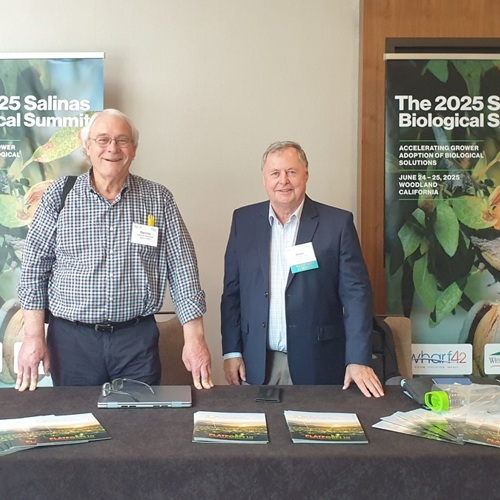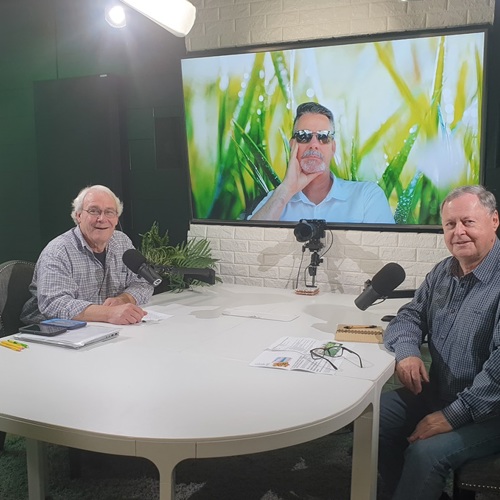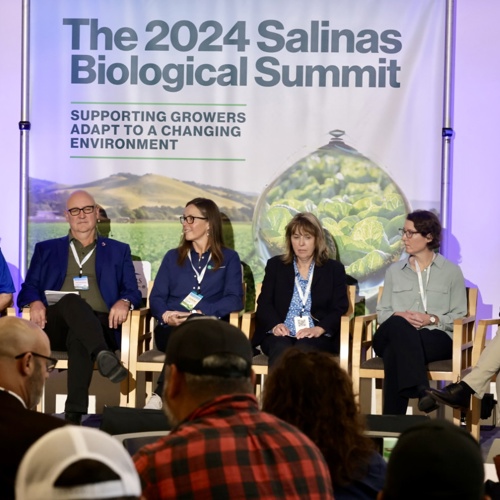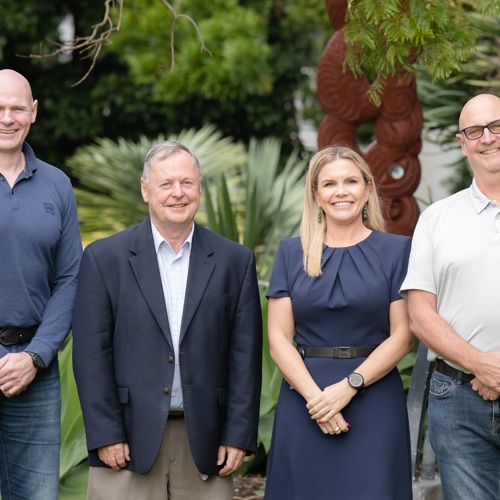Strawberries grow along the California coast on about 35,000 acres. During peak season, strawberries are harvested in Salinas, Watsonville, Santa Maria, Oxnard and Orange County. During the cooler months, strawberries continue to be harvested in Santa Maria and Oxnard, making California strawberries available year-round.
Despite their great taste, strawberries are not however immune from disease and pests.
Lygus bug, Lygus hesperus, can cause irregularly shaped, cat-faced strawberries. Lygus bugs damage fruit by puncturing individual seeds which can hinder berry development.
Macrophomina can cause foliage wilt, plant stunting, and drying and death of older leaves. Plants can eventually die.
Phytophthora can cause plant stunting and small leaves. Brown discoloration can be seen in the crown vascular tissue or throughout the crown tissue of the fruit.
The Platform10 field trials are designed to identify biological products that can address these diseases.
The Strawberry Field Trial Process
Grower Trial Implementation
Efficacy Data. Based on the mode of action (feeding deterrent, contact active, induced systemic resistance, mating disruption, etc.) data will be collected on pests and disease incidence, damage ratings, yield, product quality, effects on nontarget organisms including soil microbes** and the ability to avoid using one or more chemical product applications. Results may be published in academic journal (eg. Arthropod Management Tests (AMT) or Plant Disease Management Reports (PDMR)). Protocols will be designed in consultation with the applying company to assess how the product works when incorporated into a more integrated farming system.
**Microbial soil health data. Soil samples may be taken by a third party before and after testing and will be sent to a suitable laboratory to determine effects on the soil microbiome. Metrics typically assessed are microbial diversity and quantity, types of microorganisms (pathogens, nitrogen fixation, carbon sequestration, etc.
What is Lygus Bug?
In each crop field trial, we look at one key disease impacting on growers. In this edition, it's Lygus Bug
Lygus bug or western tarnished plant bug (Lygus hesperus) is a major pest in California strawberries and causes significant yield losses by contributing to the fruit deformity. Lygus bug is a hemipteran insect and has piercing and sucking mouthparts. They prefer plant parts rich in proteins and lipids.
Lygus bugs damage fruit by puncturing individual seeds; this, in turn, stops development of the berry in the area surrounding the feeding site.
The Platform10 Field Trial program has identified Lygus Bugs as a key pest to address.
The Growers
Platform10 are delighted to be working with outstanding Western Grower members.

Naturipe
Dr. Hillary Q. Thomas is currently the Research and Technical Director at Naturipe Berry Growers, Inc. where she develops and implements applied agricultural research and extension programs for berry crops. She is an Integrated Pest Management (IPM) expert who received her doctorate in Entomology from UC Davis in 2009. She went on to serve as a California Council on Science and Technology (CCST) fellow in the California state legislature in the office of Fiona Ma.
She was also the Senior Research Manager of the California Strawberry Commission from 2011-2015 and is a Fruit and Veg class of 2019 40 under 40 award recipient.
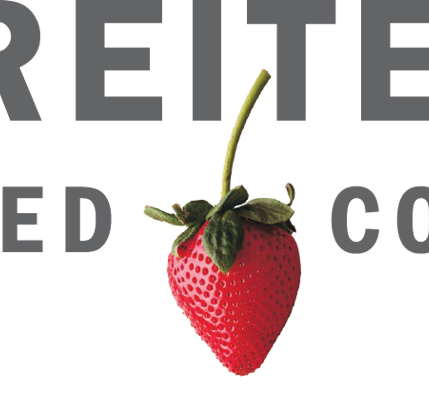
Luis Andrade
With a family legacy of farming, Reiter Affiliated Companies (RAC) is proud to be the largest fresh, multi-berry producer in the world and the leading supplier of fresh strawberries, raspberries, blueberries and blackberries in all of North America. The Reiter family began farming in the San Francisco Bay Peninsula and by the turn of the century had migrated south into Watsonville and the Santa Clara Valley where Joseph “Ed” Reiter and R.F. “Dick” Driscoll began growing their own Sweetbriar strawberries variety. After World War II, they farmed under their respective companies of Reiter and Driscoll’s and began marketing strawberries under the Driscoll Strawberry Associates label with other family and associated suppliers.
What's Next?
We will be posting updates on the progress of every field trial on this website. Timings will depend on crop cycles and we will only update when meaningful data is available.
If you believe you have a product that can help address the disease challenges identified above, please email platform10@salinas-summit.com
Our field trial programs are ongoing. Platform10 recognizes the importance of emerging science and research and is keen to support biopesticide companies looking to commercialize that science and research and take it to market.


